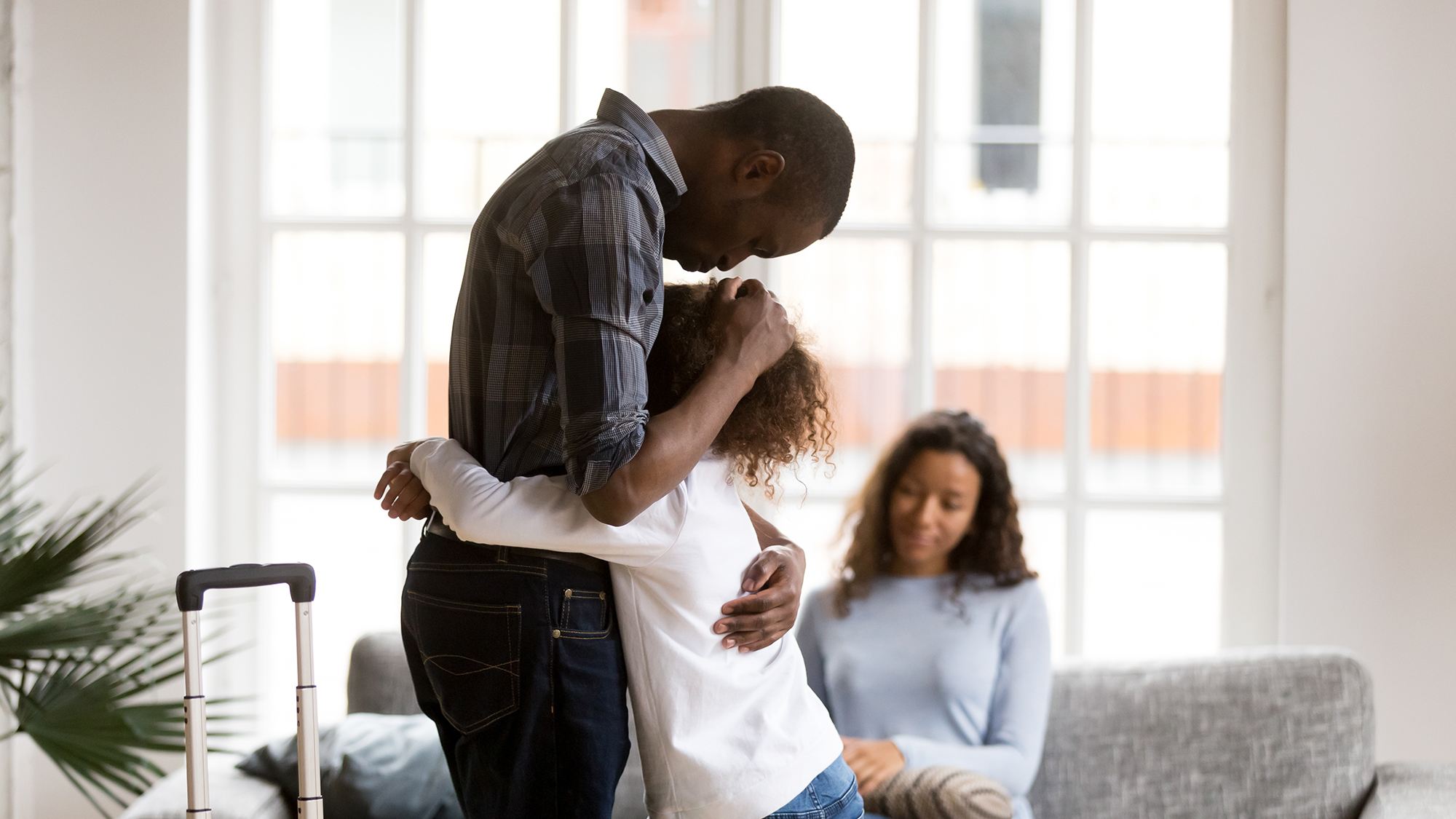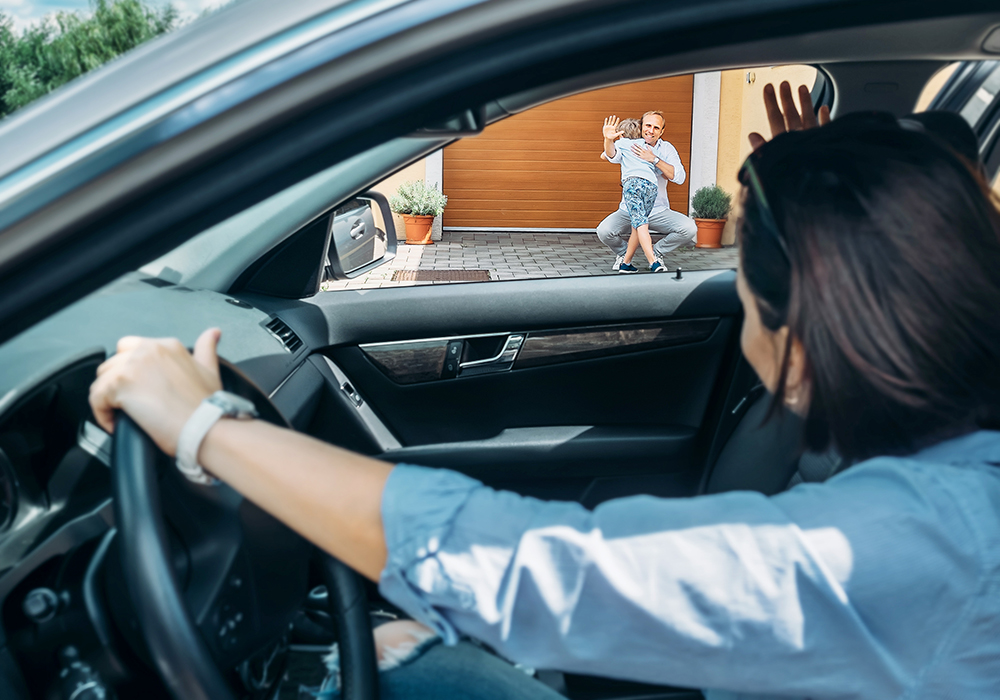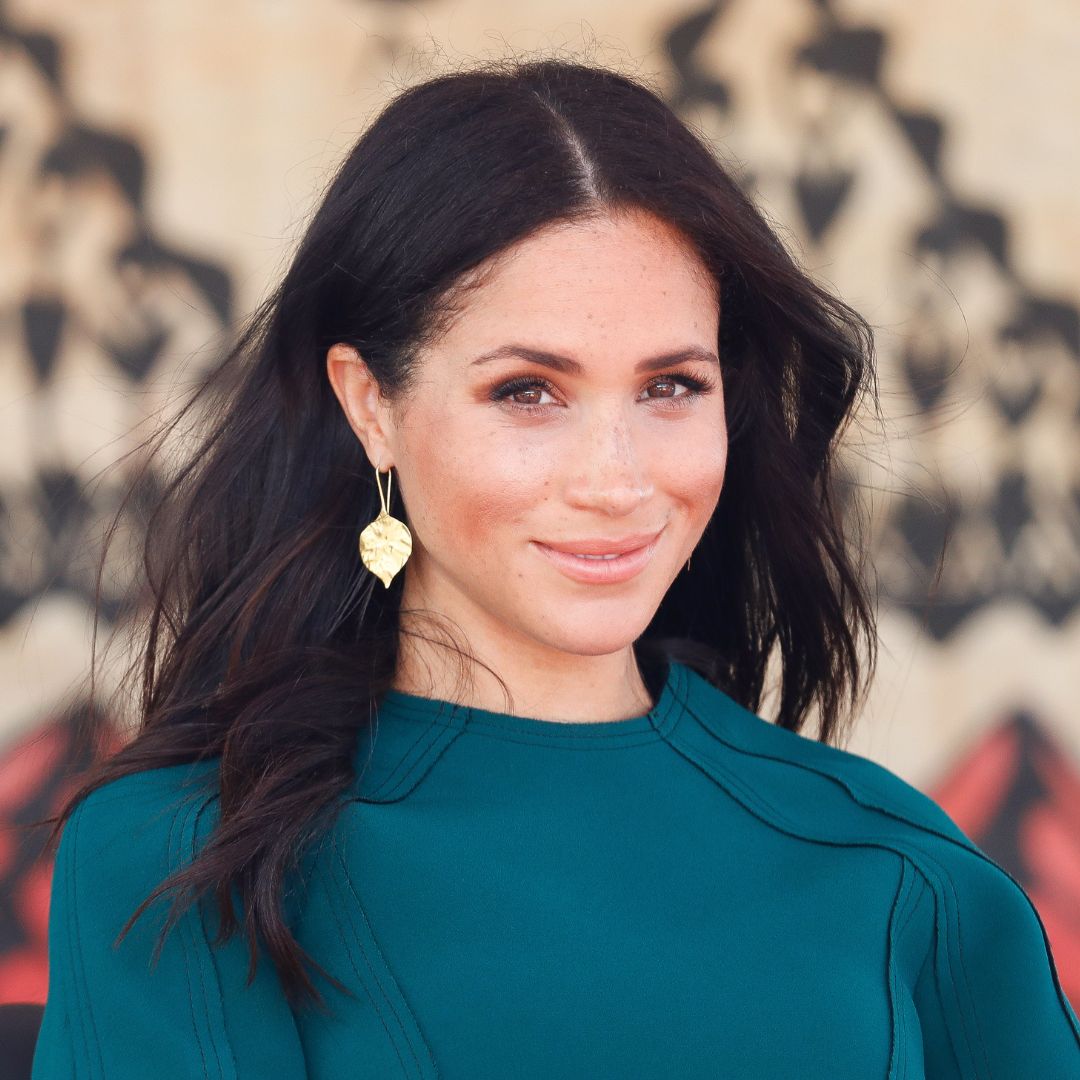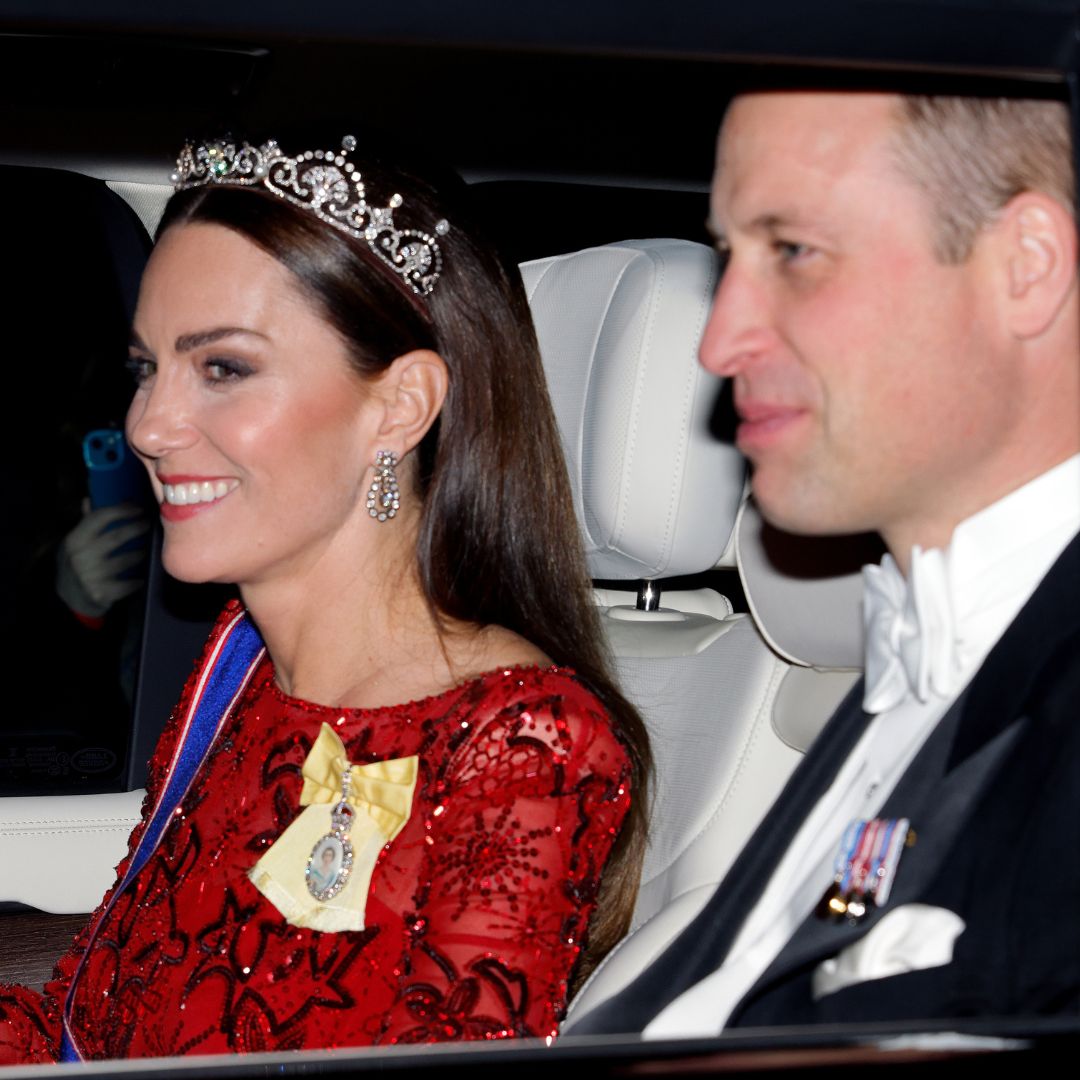Confused about the coronavirus rules on co-parenting? Let two experts explain
Keep scrolling for your need-to-knows, plus tips on how to cope, emotionally

Keep scrolling for your need-to-knows, plus tips on how to cope, emotionally
Whether it's getting your kids to exercise while home-schooling, deciding whether to take the plunge with online therapy, or navigating redundancy, everyone's facing challenges right now. The global pandemic has changed life as we know it, and continues to do so every day.
But what must life be like as a co-parent, constantly navigating new lockdown restrictions and trying to do best by your children, too?
Liam Payne opened up about how difficult he’s finding it this week. He has a son, Bear, with ex Cheryl Cole, and during an Instagram live with Ben Winston, he shared that co-parenting during coronavirus has been a struggle, to say the least. He shared:
"I went and saw Bear today. We had a little hangout which was nice as I haven’t seen him in a couple of weeks. It’s hard with the COVID thing as I have to make sure I [test] negative before I go over and see him. I have to wait that couple of days before you can test so… It's dead complicated. He’s only up the street."
Are you a co-parent who's currently struggling, or do you know someone who is? Keep reading for the current rules on co-parenting, plus advice from two experts on how to protect your mental health.
What are the co-parenting rules right now?
The UK government is encouraging everyone to stay home unless absolutely necessary. Current guidelines state that co-parenting does not count within this law: an exception can be made for 'any medical need, or to provide care or to help a vulnerable person', and this particular rule also includes 'moving children under 18 years old between their parents’ homes.'
But, with police patrolling and fines being handed out, it could still be a daunting endeavour for many families. Some may feel torn and unable to stick to the 'stay home' guidance, and others may have reduced the number of visits they're making to lessen risk of spreading or catching the virus.
Marie Claire Newsletter
Celebrity news, beauty, fashion advice, and fascinating features, delivered straight to your inbox!
Caroline Harper, specialist mental health adviser for Bupa UK, agrees, sharing that even time spent together may be difficult now. If you're stressing about the news or current events, you may be on your phone more, in turn missing quality time with your kids. "We're more likely to listen to one another if we're not distracted by technology, too," she shares.
Quality over quantity
But remember this: it’s not about the quantity of time, but rather the quality of time spent with your children, she emphasises. So next time you're feeling down or lonely, remember, you have lost of special quality time yet to come.
One final thing: co-parenting can sometimes be difficult for your child, so remember to check-in and ask them how they feel about the situation. "Talking openly about mental health can really help. If you notice a change to your child’s behaviour, there’s support available. Talk to their other parent, and together speak to your child’s GP if necessary," Caroline recommends.

10 tips for co-parenting during coronavirus
Trust your child to cope
According to Oona Alexander, parenting expert and founder of Radically Loving Parenting, children are resilient. "When we trust them to be okay, even when situations are challenging, we give them a powerful message that we believe in their ability. Trusting them to cope is so empowering for them - and for us," she explains.
Don’t believe your thoughts
In other words, try and curb any catastrophising, where possible. "Worrying about what’s going to happen for your child? Remember that your thoughts are just your thoughts. They’re not necessarily true. Try and say, “thank you for sharing” to the part of you which is worrying, and then make the active choice not to listen," she recommends.
Be okay with not being okay
Emotions are meant to go up and down - it’s the natural way of life. "When my son went to stay with his father recently, I felt a bit bereft," Oona explains. "However, I understood that my feelings were natural and that they too would pass: I didn’t make the mistake of worrying that I would be sad forever or telling myself off for being down."
By being okay with momentarily not being okay, you'll be able to recover quickly, she shares.
Take radical care of yourself
Need some self-care ideas? You're in the right place. "We can cope so much better with lifes stresses when we take care of ourselves," Oona explains. This can include small things like getting enough sleep, drinking enough water, eating nutritious food and taking time to exercise.
"If you’re struggling with being away from your child right now and it all feels too much, a lovely warm bath will always help," she shares.
Connect energetically with your child
This is very out there, but may bring you comfort on days when you're feeling extra far away from your little one, Oona shares.
"If you’re missing your child, try closing your eyes and picturing your little one in front of you. Then, send a beam of love from your heart to theirs. You can see it as a river of light, or a rope or a beam of love, it doesn’t matter. What matters is your intention to connect with your child and send your love to them."
Ready?
Allow your child to feel their emotions
While you likely envisaged joyous reunions - don't we all - Oona points out that it's totally normal if your children aren't immediately happy to see you. "Your child may need to express some grumpy feelings about having been away from you, or they may struggle to make the transition to being with you, after spending time with their other parent," she explains.
The best thing you can do? Make space for these feelings and express empathy for your child. "This will help your child to feel understood and connect with you," the child expert adds.
Make things easy for yourself
Co-parenting during coronavirus is hard, so Oona encourages you to be as kind to yourself as possible.
"Cut yourself some slack," she says. "When your children are around, make things as easy for yourself and them as you can. Perhaps you don’t need to follow home-schooling instructions to the letter, or if you allow a little more screen time than normal." In short, do what works for you and your kid.
If things do go pear-shaped, repair
Remember, parents don't always get things right, especially when they're anxious or under stress. So, if you do end up shouting at your child or losing your temper, know that the best thing you can do is to apologise and let your child know that you’re sorry that you missed an opportunity to be kind.
"Research shows that repair makes all the difference to your child’s ability to form a healthy attachment, even when things aren’t perfect," Oona explains.
Show an interest in their interests
Make time to chat with your child about their main interests, whatever they may be.
Have a child that doesn’t like talking that much? Try this instead: when they’re doing something they enjoy, say building Lego or watching their favourite TV show, sidle up to them and spend a moment commenting on their current building project or on the show. "Children are so grateful when we show an interest in their thing," she explains.
Your presence is the best present
And finally, know that ultimately, your child will be looking forward to spending time with you, or so says the parenting expert. "When you’re with your child, you don’t have to plan anything amazing or give them any shiny gifts, to make them feel special. The greatest gift you can give your child is your attention," she explains.
Which means? Creating time to be with your child - whether that's playing games, chatting, cooking or just hanging out together. "That’s what children love. Do the ordinary things with loving attention and in doing so, you'll create magic for your child," she concludes.
Co-parenting during coronavirus won't be easy, but it will be worth it, in the end. If you are struggling mentally, do reach out to your local GP. They are always there to offer professional help.

Ally Head is Marie Claire UK's Senior Health and Sustainability Editor, nine-time marathoner, and Boston Qualifying runner. Day-to-day, she heads up all strategy for her pillars, working across commissioning, features, and e-commerce, reporting on the latest health updates, writing the must-read wellness content, and rounding up the genuinely sustainable and squat-proof gym leggings worth *adding to basket*. She also spearheads the brand's annual Women in Sport covers, interviewing and shooting the likes of Mary Earps, Millie Bright, Daryll Neita, and Lavaia Nielsen. She's won a BSME for her sustainability work, regularly hosts panels and presents for events like the Sustainability Awards, and is a stickler for a strong stat, too, seeing over nine million total impressions on the January 2023 Wellness Issue she oversaw. Follow Ally on Instagram for more or get in touch.


